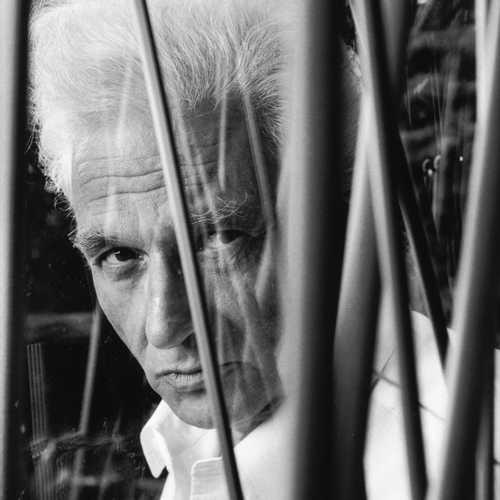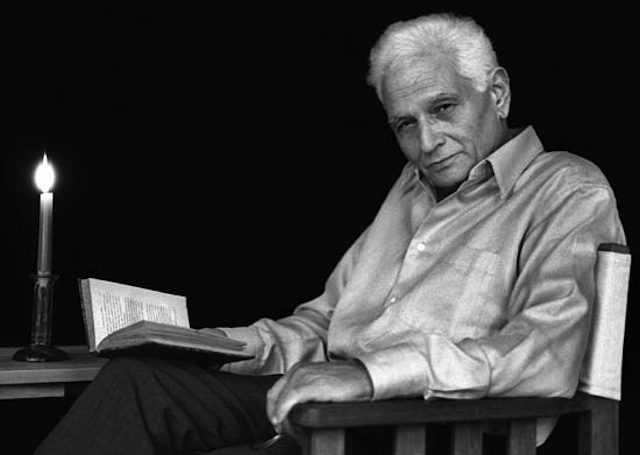How to deconstruct the world | Psyche Guides
Curated from: psyche.co
Ideas, facts & insights covering these topics:
6 ideas
·4.9K reads
22
Explore the World's Best Ideas
Join today and uncover 100+ curated journeys from 50+ topics. Unlock access to our mobile app with extensive features.
Thinking like Jacques Derrida (1930-2004)
Jackie - his real name - was born in Algeria on 15 July 1930. Some consider him as one of the greatest philosophers of the 20th century.
Part of thinking like Derrida is taking the things we take most for granted, such as our identity and language, and looking for assumptions, contradictions, and absences.
172
2.62K reads
Deconstructionism
In 1967 Jacques Derrida introduced a new method to philosophy named deconstruction.
It is the idea that if something is constructed, it can be de-constructed. Not just things like chairs, cars and houses but also concepts such as truth, justice, and God. Derrida reasoned that these concepts we assume as natural are culturally constructed.
127
661 reads
The ‘metaphysics of presence’
Deconstruction is not destruction. The concept or object is still there. To think deconstructively is not only to question accepted truths but to ask in whose interests it is if they are accepted.
Jacques Derrida was fascinated by the many factors that went into constructing a concept and the final act of construction itself: the belief that any concept is coherent and has a single fixed meaning and that this meaning is true, pure and unconstructed. He called the belief that coherence is a measure of truth, the 'metaphysics of presence'.
124
508 reads
Deconstruct a text to understand it
A text can be anything, a book, a movie, a recording.
- Start by finding a silent space.
- Next, find something to deconstruct: a poem, a timetable, a shopping list, philosophy, this text.
- Start deconstructing. How is the text regarded? Question accepted truths, and in whose interest it is that they are accepted.
- Look for places within the text that contradict each other. (Films may provide ample examples.)
- Don't listen to what the author says. Trust your own analysis of a text.
129
427 reads
Treat every text with suspicion
- Derrida thought there was no true assessment of a text. The dominant assessment tells us about the conditions around the text rather than the text itself.
- To think like Derrida means looking at a text, finding what it is trying to promote, then looking in the opposite direction.
- Look for contradictions and consider what they mean.
- A more subtle way of looking at a text is to see what happens if you look at one text through another interpretation. (What role does race play in the Marvel movies?)
120
318 reads
Why engaging in deconstruction matters
The words and concepts we use, including the words in our mind we mistake for thinking, emerge from the culture around us.
No work can be pure in itself. Deconstruction is always happening in any work, and looking closely reveals how a text is happening and how the creator has pretended it isn't. For example, books like Landscape With Landscape (1985) by Gerald Murnane continually draw the readers' attention to the fact that they're reading a novel but can't just get lost in the story.
114
362 reads
IDEAS CURATED BY
The first step in the acquisition of wisdom is silence, the second listening, the third memory, the fourth practice, the fifth teaching others.
Nicholas J.'s ideas are part of this journey:
Learn more about problemsolving with this collection
How to practice effectively
The importance of consistency
How to immerse yourself in the language
Related collections
Similar ideas
7 ideas
9 ideas
Read & Learn
20x Faster
without
deepstash
with
deepstash
with
deepstash
Personalized microlearning
—
100+ Learning Journeys
—
Access to 200,000+ ideas
—
Access to the mobile app
—
Unlimited idea saving
—
—
Unlimited history
—
—
Unlimited listening to ideas
—
—
Downloading & offline access
—
—
Supercharge your mind with one idea per day
Enter your email and spend 1 minute every day to learn something new.
I agree to receive email updates

